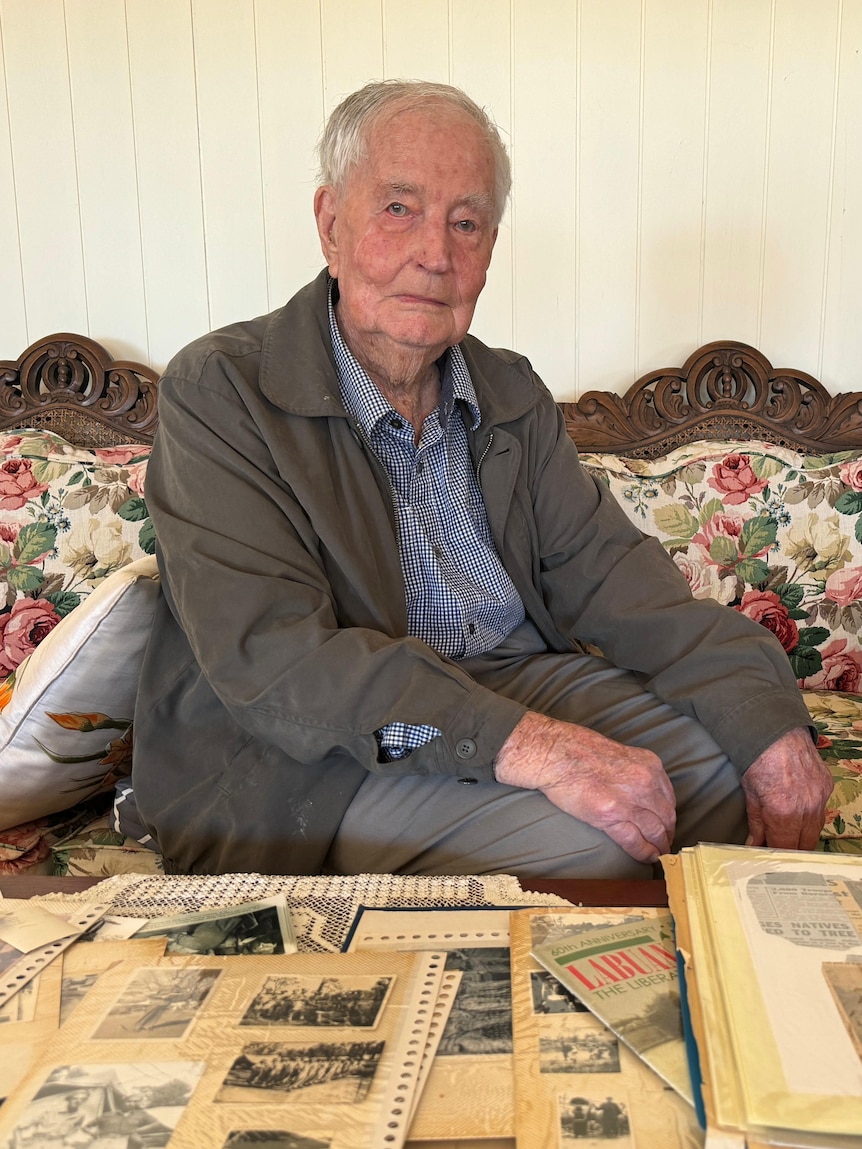One of Australia’s oldest living World War II veterans has never marched on Anzac Day – he is one of many across the country who choose not to be part of the commemoration.
Colin Wagener, 106, was aged just 20 in 1938 when he signed up to the military part-time at the Keswick Barracks in Adelaide, alongside his three best friends.
“We knew there was a war coming so we decided to get in before they came and got us,” Mr Wagener said.
“Only one of us made it back, and that was me.”
Soon after joining the army full-time, Mr Wagener found out he would be posted to a camp at Bonegilla, near Wodonga in Victoria, to work as an instructor and would be leaving his partner Peggy behind.
“I had four hours and I raced back and saw her and said, ‘Do you want to get married?'” he said.
“We raced into the registry office and got married and I was back by 12 o’clock.”
After moving to Townsville, in north-eastern Queensland, in 1944, Mr Wagener eventually worked his way up the ranks to sergeant and earned his own operational unit from the Air Regiment.
A year later, the unit travelled on a landing ship tank to the island of Morotai in Indonesia before joining a convoy bound for Borneo.
Mr Wagener took photographs along the way by trading rationed cigarettes for darkroom equipment to develop film during the nights.
“The reason I could photograph was because I didn’t smoke,” he said.
“With a handful of 30 cigarettes, you could buy just about anything.
“We did it [developed photographs] with a torch with a red rag over a torch and it was quite dark; we just hoped nobody would shine a light and muck it up while we were developing.”
After recovering his photographs years later, Mr Wagener contacted the Australian War Memorial in Canberra to show them his perspective of the historical events.
“They came to see me here and I gave them my version and they said, ‘Yours is the right one, the ones we have are censored,'” he said.
Some of those photos now feature at the memorial alongside the official photographs.
In December 1945 – at the end of World War II – Mr Wagener was sent back to Brisbane before he eventually boarded a train home to Adelaide.
“We were wet from a shower of rain, we were dirty, we were hungry but we didn’t care – we were going home,” he said.
“The best Christmas present I ever got in my life was half past 10 Christmas morning 1945 when a train pulled into the Adelaide Railway Station and I was on it.
“My father picked me up and brought me home. It was a wonderful feeling to walk up to my front door knowing I’d never have to go away again.”
Mr Wagener describes Anzac Day as his “holy day” but has never chosen to participate in a march.
“I didn’t want to know any more about it, I’d had enough,” he said.
“I respect it all and do what I have to do but it’s not my thing.”
RSL Anzac Day Committee chair Ian Smith said there were multiple reasons veterans chose not to take part in commemorations.
“Some people finish their service life and they want to go back to their life, they didn’t see it as a continuation,” he said.
“Others, in my view, wrongly treat their service differently from the way other veterans treat their service or think of their service in a different way.
“They don’t believe they have the right or even that their service is important enough for them to be able to march.”
Mr Smith said while he understood why some veterans felt that way, he believed it was important for the general public to be able to honour their service.
“Just because someone served for only the last year of the Second World War, they still served on operations, overseas and against the enemy,” he said.
“I think we have to say to them that it’s important to other people to see you on Anzac Day and to pay respect to your service, but it’s also important to respect their feelings about it.”
Mr Wagener considers the years after the end of the war as his “bonus years” and attributed his longevity to living an active lifestyle.
“I think with health, I’m just lucky,” he said.
“I can’t give any secrets to long life except I’ve been very, very active.
“I’m not interested one bit in football or cricket or anything like that but water skiing and snow skiing, I like.”
Those activities might be beyond him now, but he marches on in his “bonus years”.
Mr Wagener will be 107 in December.




